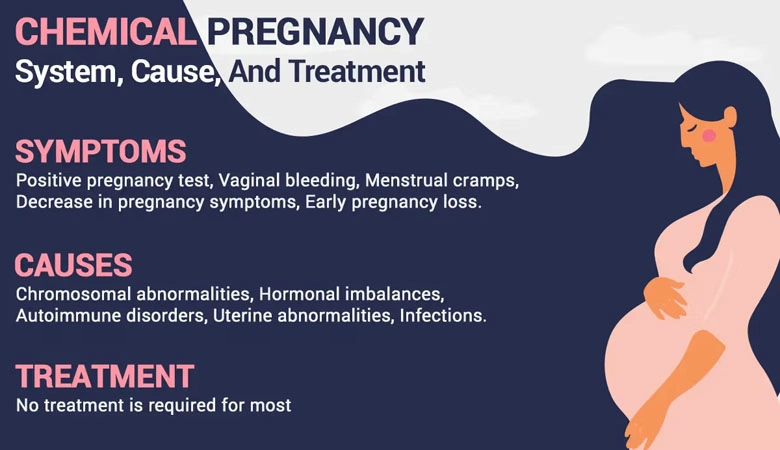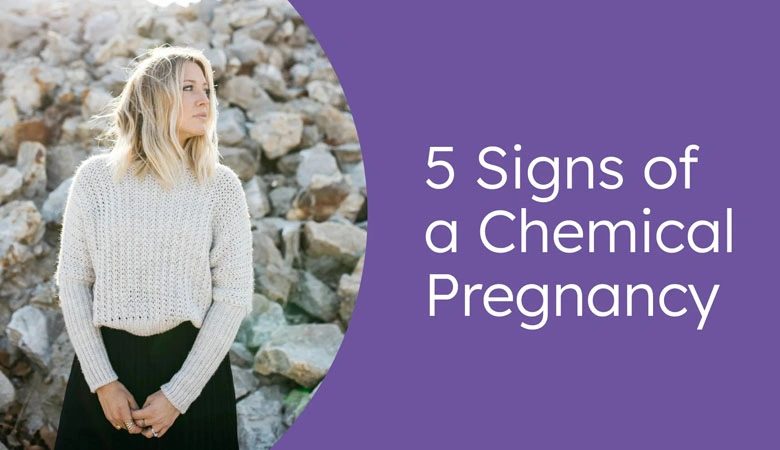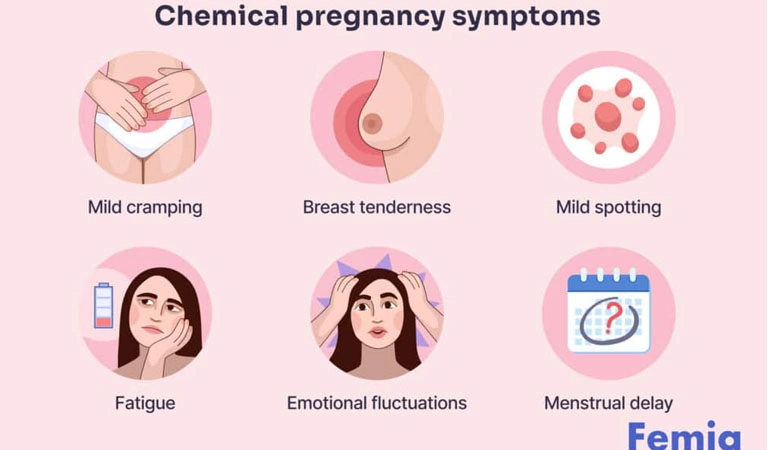What is a Chemical Pregnancy
- Pregnancy
-
- UPDATED November 17, 2024

by Tasha Mayberry
480 shares
Getting to know that you are pregnant can undoubtedly be one of the most emotional
moments in your life. But, many women experience heavy bleeding within a few days or
weeks after seeing a positive pregnancy test result, and it could be a sign of miscarriage.
A chemical pregnancy, also widely known as a biochemical pregnancy, is a very early
miscarriage, usually occurring around week four or five of your menstrual cycle. This type of
pregnancy loss happens when a fertilized egg fails to properly implant in the uterus.
Chemical pregnancies are highly common; in fact, they are known to be accountable for
around 50 to 70 percent of all miscarriages. Another surprising fact is that many women do
not even realize that they have had a chemical pregnancy if they do not take pregnancy tests
regularly.
But, why is it Called a Chemical Pregnancy?
It is called a chemical pregnancy because the level of hCG hormone, or Human Chorionic
Gonadotrophin, is sufficiently increased during the beginning to deliver a positive pregnancy
test result. However, the hCG level will go down again before the gestational sac can be seen
on an ultrasound, which is usually considered the first sign of pregnancy on ultrasound.
Causes of a Chemical Pregnancy

Though the exact cause of a chemical pregnancy is hard to diagnose, in most cases, however,
it is known to happen due to some sort of abnormality in the fertilized egg. As a result, the
egg might never implant, or the pregnancy will get naturally aborted. While you may not
know the actual cause of your chemical pregnancy, some of the most common causes are:
● Implantation of the fertilized egg outside the uterus
● Irregular hormone levels
● Uterine abnormalities
● Infections like syphilis, etc.
Signs/Symptoms of a Chemical Pregnancy

As mentioned earlier, many women may not experience any signs or symptoms or don’t even
realize that they have conceived when they experience a chemical pregnancy. In the case of
women who do experience some signs, some of the commonly noticed symptoms are:
● A positive pregnancy test followed by a negative one.
● Mild spotting before a few days of their actual period date.
● Mild stomach cramps, usually menstrual-like.
● Heavy vaginal bleeding after a positive pregnancy test result.
● Low hCG levels on a blood test.
Do note that spotting or bleeding after a positive pregnancy test doesn’t necessarily mean a
chemical pregnancy. Slight bleeding occurs even during implantation, an early stage when
the fertilized egg attaches to the uterus. Also, a chemical pregnancy doesn’t continue long
enough to cause pregnancy symptoms, such as morning sickness and fatigue.
Miscarriage due to a chemical pregnancy is different from normal miscarriages. In general,
miscarriages in expecting women can commonly occur before they reach the 20 th week, and
sometimes it can happen at a later stage as well. With a chemical pregnancy, on the other
hand, miscarriage happens very early during pregnancy, as early as right after implantation,
and since the symptoms are more or less similar to those with a usual menstrual cycle, many
women take them for menstrual cramping or bleeding.
Chemical Pregnancy in IVF

A chemical pregnancy is also known to commonly take place after In Vitro Fertilization, or
IVF, a treatment option available for women who cannot conceive due to different fertility-
related factors, including ovulation issues, damaged fallopian tubes, and endometriosis.
After IVF, the woman’s blood will be drawn to check for conception, usually between 9 and
14 days after the treatment, and if the implantation was successful, the test will be positive.
Again, unfortunately, if there have been abnormalities with the fertilized egg, a chemical
pregnancy might occur.
Treatment for a Chemical Pregnancy

Will you need treatment for chemical pregnancy? In most cases, a chemical pregnancy does
not require medical attention. Since they happen so early, they do not have much effect on
your body. However, if you notice that you are bleeding heavily, experience pains, or find
clots while bleeding, you could have a word with your doctor.
If you have just experienced a chemical pregnancy, you could start trying to conceive almost
immediately, depending on you and your partner’s mindset.
On the other hand, if you have had multiple chemical pregnancies, you should get tested by
your doctor to find out any underlying causes and obtain treatment for the same to reduce the
chances of another chemical pregnancy.
Recovery
Just like a normal miscarriage, a chemical pregnancy also can cause agony in women. While
many might feel a little sad knowing about it, there will be some women who could get
completely grief-stricken, especially if they have been waiting for long or taking treatments
to get pregnant.
Just know that no matter how you feel, sad, devastated or neutral, it is OK. You don’t have to
express or justify your sadness to others or expect them to understand your feelings because
there will be people who may not understand that a miscarriage at any stage can be saddening
to a woman. Also, some of you may need more time to recover than others, in which case
take all the time you need, talk to your partner, share your feelings with your close friends
and loved ones, and seek professional support if necessary.
More importantly, understand that a chemical pregnancy is in no way your fault, because
most of such cases are due to some form of chromosomal abnormalities, and there is nothing
in your power to prevent them. And just because your pregnancy got terminated so early,
doesn’t mean you cannot conceive again, and don’t let anyone tell you otherwise. Instead,
take it as a positive sign that you are capable of getting pregnant and try again whenever you
are ready.
